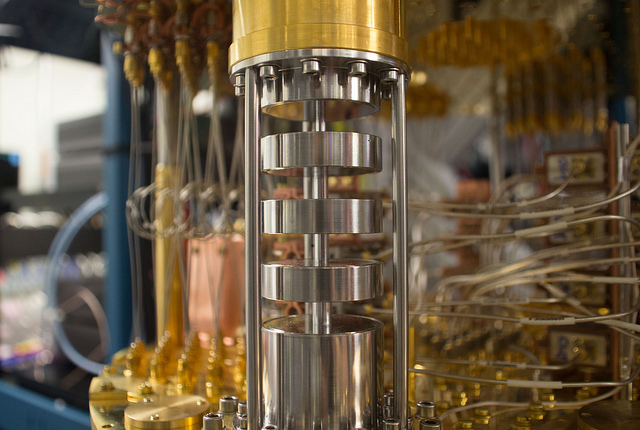 EMERGING TECH
EMERGING TECH
 EMERGING TECH
EMERGING TECH
 EMERGING TECH
EMERGING TECH
Quantum computing and the blockchain both get plenty of attention in 2017, and now researchers in Russia have combined the two to create what they claim is an unhackable distributed-ledger platform.
The new technology, described as the “first quantum-safe blockchain,” promises to make it secure for organizations to transfer data without the fear of hacking from even the most powerful computers, in this case, the emerging field of quantum computing. Quantum computers make use of the quantum states of subatomic particles to store information, with the potential to do some calculations far faster than current computers. There’s some dispute whether we have actually reached that point yet, but companies such as Google Inc. are promising that true quantum computing is just around the corner.
“Quantum computers pose a major threat to data security today and could even be used to hack blockchains, destroying everything from cryptocurrencies like bitcoin to secure government communications,” a spokesperson for the Russian Quantum Center told SiliconANGLE. “Because quantum computers can test a large number of combinations at once, they will be able to destroy these digital signatures, leaving the blockchain vulnerable.”
The group claims that its solution secures the blockchain by combining quantum key distribution with post-quantum cryptography so that it is essentially unhackable. It does so through the implementation of special blocks within the blockchain that are signed by quantum keys rather than the traditional digital signatures.
While the technology is relatively new, it has already been tested, with Russian bank Gazprombank having successfully deployed the quantum-safe blockchain platform in a beta test.
“Current solutions are not entirely secure as they will eventually be broken as hacking algorithms advance,” the RQC added. “For example, post-quantum cryptography organizes digital signatures in a unique way that makes it more complex to hack them. However, they are still vulnerable to the development of new algorithms and it is only a matter of time until someone creates a way to hack them.”
Support our mission to keep content open and free by engaging with theCUBE community. Join theCUBE’s Alumni Trust Network, where technology leaders connect, share intelligence and create opportunities.
Founded by tech visionaries John Furrier and Dave Vellante, SiliconANGLE Media has built a dynamic ecosystem of industry-leading digital media brands that reach 15+ million elite tech professionals. Our new proprietary theCUBE AI Video Cloud is breaking ground in audience interaction, leveraging theCUBEai.com neural network to help technology companies make data-driven decisions and stay at the forefront of industry conversations.